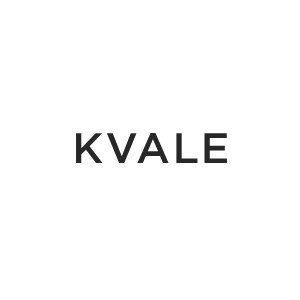Best Art & Cultural Property Law Lawyers in Oslo
Share your needs with us, get contacted by law firms.
Free. Takes 2 min.
List of the best lawyers in Oslo, Norway
About Art & Cultural Property Law in Oslo, Norway
Art & Cultural Property Law in Oslo, Norway, encompasses a variety of legal issues related to the protection, management, and transfer of art and cultural artifacts. This field of law is particularly important given Norway's rich cultural heritage and thriving art scene. It involves regulations on the export and import of cultural goods, ensuring the protection of cultural heritage, addressing illegal trafficking, and navigating the nuanced rights of artists and collectors.
Why You May Need a Lawyer
Individuals or entities may need legal assistance in Art & Cultural Property Law in various situations. Common scenarios include:
- Disputes over the ownership or provenance of an artwork.
- Negotiating contracts for the sale or loan of artworks.
- Representation in cases involving the illegal export or import of cultural property.
- Addressing issues related to intellectual property rights and copyrights for artists.
- Assisting museums or galleries in acquisition processes and ensuring compliance with legal frameworks.
- Guidance on estate planning involving significant art collections.
Local Laws Overview
In Oslo, Art & Cultural Property Law is governed by both national regulations and international agreements. Key aspects include:
- The Cultural Heritage Act: This act provides a framework for the protection and management of cultural heritage sites and movable cultural property.
- International Conventions: Norway is a signatory to conventions such as the UNESCO Convention on the Means of Prohibiting and Preventing the Illicit Import, Export and Transfer of Ownership of Cultural Property.
- Export Control: Regulations on the export of cultural objects ensure that significant items are not permanently taken out of the country.
- Cultural Property Taxation: There are specific tax regulations affecting the acquisition, sale, and donation of artworks.
Frequently Asked Questions
What is considered cultural property in Norway?
Cultural property includes items that have historical, artistic, or archaeological significance, such as artworks, manuscripts, and artifacts.
Can I export an artwork from Norway?
Exporting cultural property is subject to control and may require a permit, especially for items of historical significance.
How are disputes over art ownership resolved?
Disputes can be settled through negotiation, mediation, or litigation, depending on the complexity and parties involved.
What are my rights as an artist in Oslo?
Artists have rights under copyright law to protect their creations. Legal advice can help navigate issues such as royalties and reproduction rights.
How can I ensure the provenance of an artwork?
Due diligence, including research and documentation review, is crucial. Legal assistance can verify provenance and resolve issues of contested ownership.
Are there specific laws for indigenous artifacts in Norway?
Yes, there are laws that particularly protect indigenous cultural heritage. Unauthorized trade or alteration of such artifacts may be illegal.
Can I donate art to a museum for tax benefits?
Yes, donations can offer tax benefits, but they must comply with legal requirements. Consulting a lawyer will ensure that you're following proper procedures.
What should I do if I find an artifact on my property?
By law, artifacts found on private property must be reported to relevant authorities to determine their cultural significance.
How does inheritance law affect art collections?
Inheritance laws can significantly impact the transfer of art collections. Proper legal structuring can ensure the intended distribution of assets.
Who regulates art auctions in Norway?
Art auctions are regulated by both national laws and industry standards to ensure the fair and legal sale of artworks.
Additional Resources
For further assistance and information, you may consider these resources:
- The Norwegian Directorate for Cultural Heritage - Provides guidelines on cultural property management.
- Nasjonalmuseet - Offers resources and expertise on art conservation.
- The Norwegian Tax Administration - Information on taxation related to art transactions.
Next Steps
If you need legal assistance in Art & Cultural Property Law, consider taking the following steps:
- Identify your specific legal needs: Issues involving art and cultural property are diverse, and understanding your requirements is crucial.
- Consult a specialized lawyer: Seek a legal expert with experience in Art & Cultural Property Law in Norway.
- Gather relevant documents: These may include provenance records, contracts, and correspondence related to your matter.
- Ensure compliance with current laws: Stay informed about the latest legal developments in Norway and internationally that may affect your situation.
Lawzana helps you find the best lawyers and law firms in Oslo through a curated and pre-screened list of qualified legal professionals. Our platform offers rankings and detailed profiles of attorneys and law firms, allowing you to compare based on practice areas, including Art & Cultural Property Law, experience, and client feedback.
Each profile includes a description of the firm's areas of practice, client reviews, team members and partners, year of establishment, spoken languages, office locations, contact information, social media presence, and any published articles or resources. Most firms on our platform speak English and are experienced in both local and international legal matters.
Get a quote from top-rated law firms in Oslo, Norway — quickly, securely, and without unnecessary hassle.
Disclaimer:
The information provided on this page is for general informational purposes only and does not constitute legal advice. While we strive to ensure the accuracy and relevance of the content, legal information may change over time, and interpretations of the law can vary. You should always consult with a qualified legal professional for advice specific to your situation.
We disclaim all liability for actions taken or not taken based on the content of this page. If you believe any information is incorrect or outdated, please contact us, and we will review and update it where appropriate.













